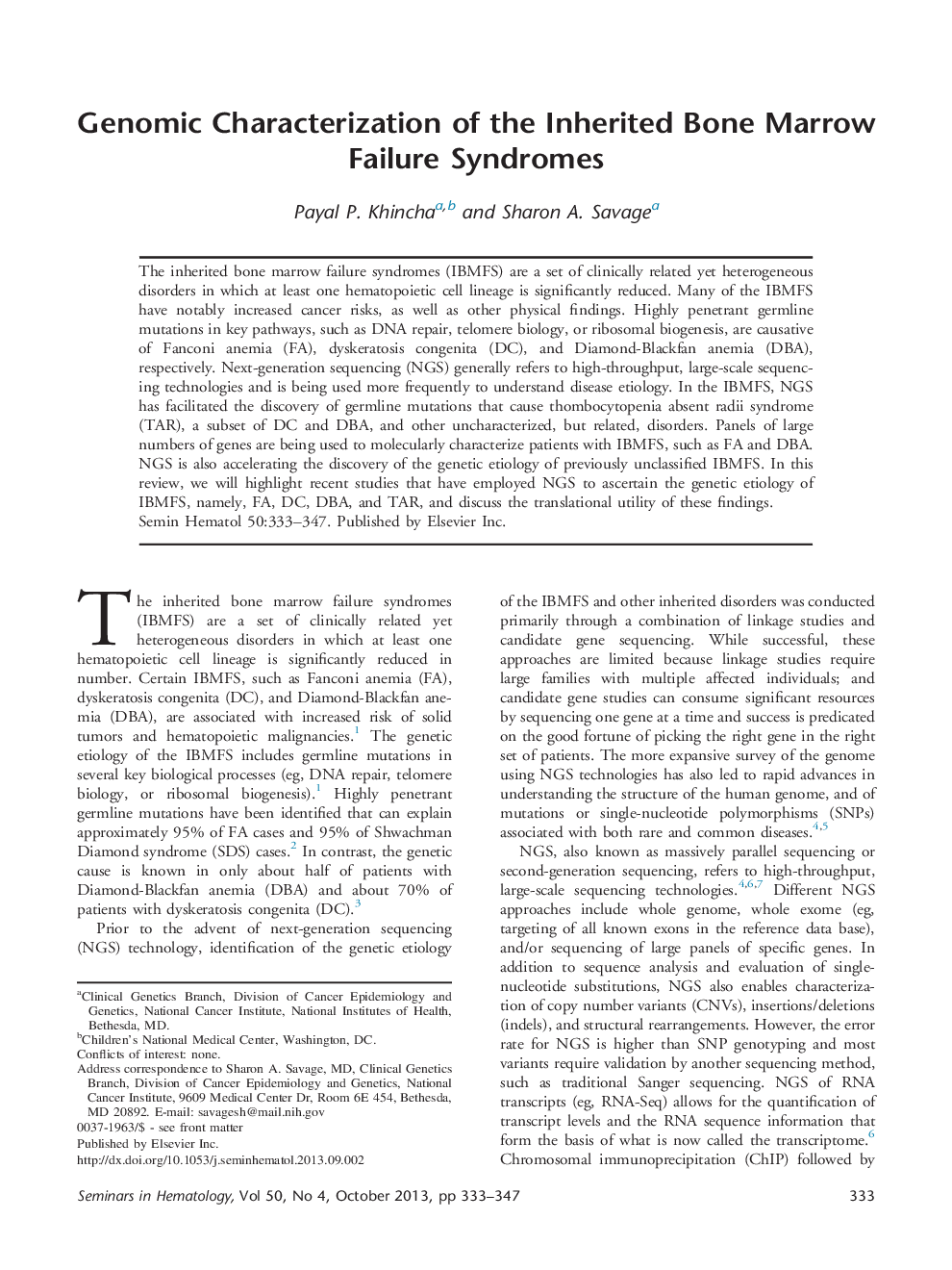| Article ID | Journal | Published Year | Pages | File Type |
|---|---|---|---|---|
| 3333560 | Seminars in Hematology | 2013 | 15 Pages |
The inherited bone marrow failure syndromes (IBMFS) are a set of clinically related yet heterogeneous disorders in which at least one hematopoietic cell lineage is significantly reduced. Many of the IBMFS have notably increased cancer risks, as well as other physical findings. Highly penetrant germline mutations in key pathways, such as DNA repair, telomere biology, or ribosomal biogenesis, are causative of Fanconi anemia (FA), dyskeratosis congenita (DC), and Diamond-Blackfan anemia (DBA), respectively. Next-generation sequencing (NGS) generally refers to high-throughput, large-scale sequencing technologies and is being used more frequently to understand disease etiology. In the IBMFS, NGS has facilitated the discovery of germline mutations that cause thombocytopenia absent radii syndrome (TAR), a subset of DC and DBA, and other uncharacterized, but related, disorders. Panels of large numbers of genes are being used to molecularly characterize patients with IBMFS, such as FA and DBA. NGS is also accelerating the discovery of the genetic etiology of previously unclassified IBMFS. In this review, we will highlight recent studies that have employed NGS to ascertain the genetic etiology of IBMFS, namely, FA, DC, DBA, and TAR, and discuss the translational utility of these findings.
